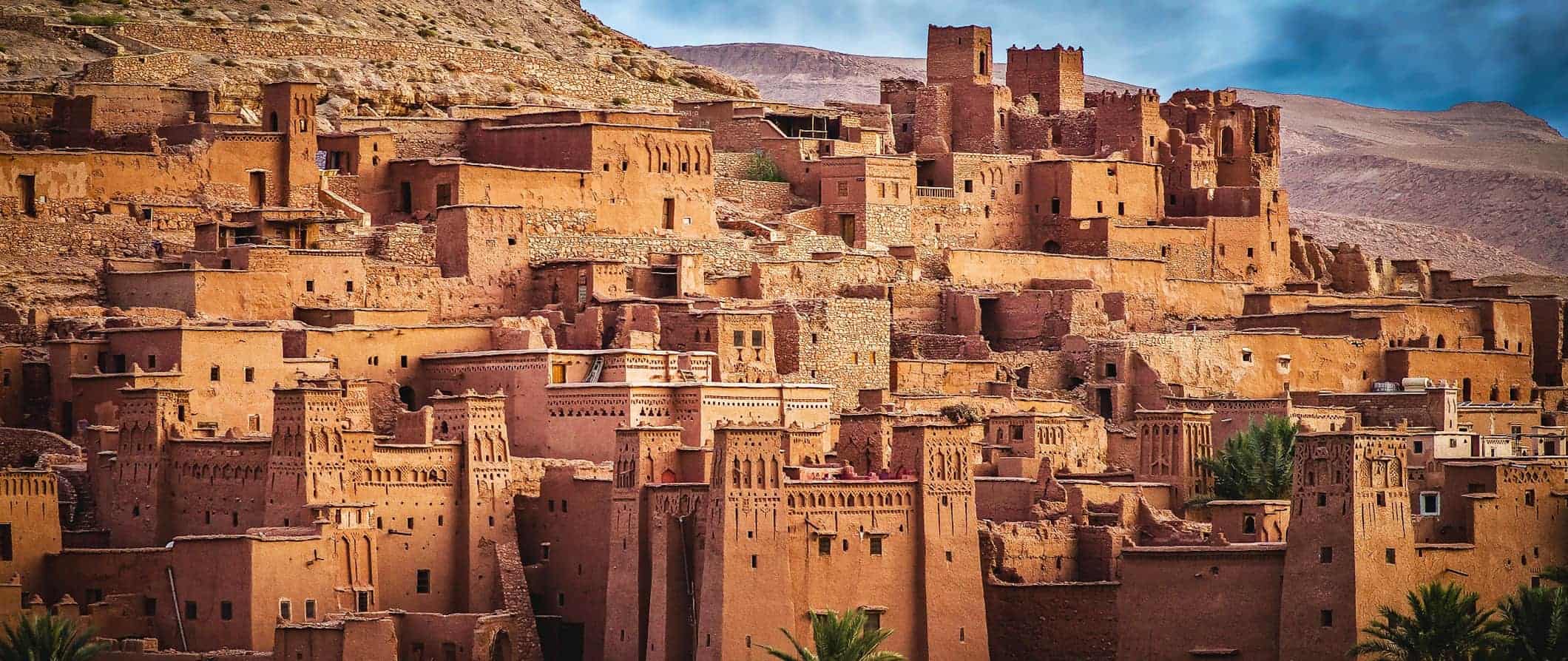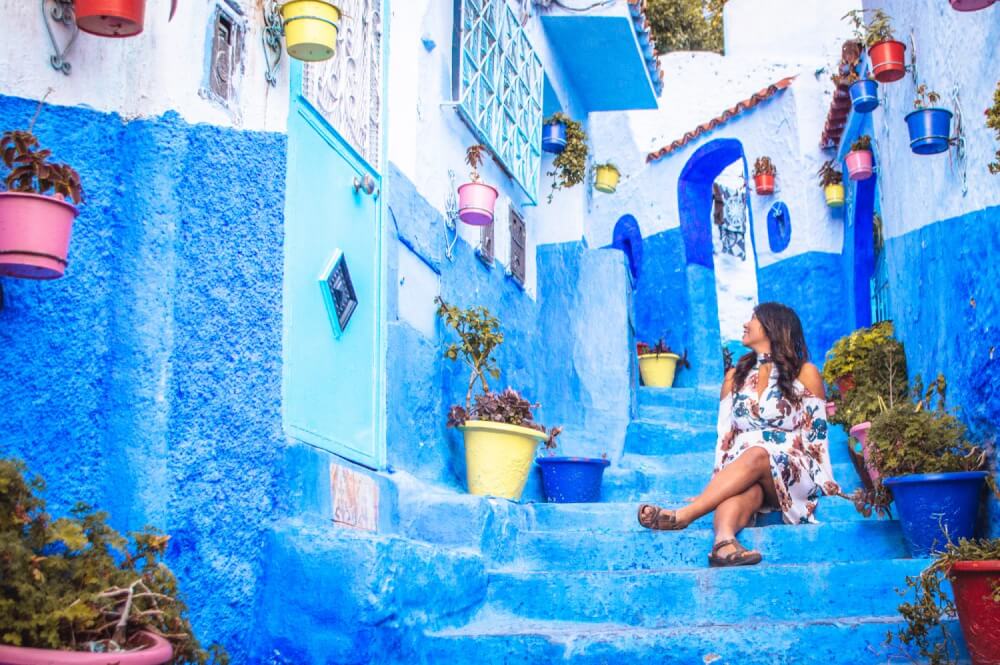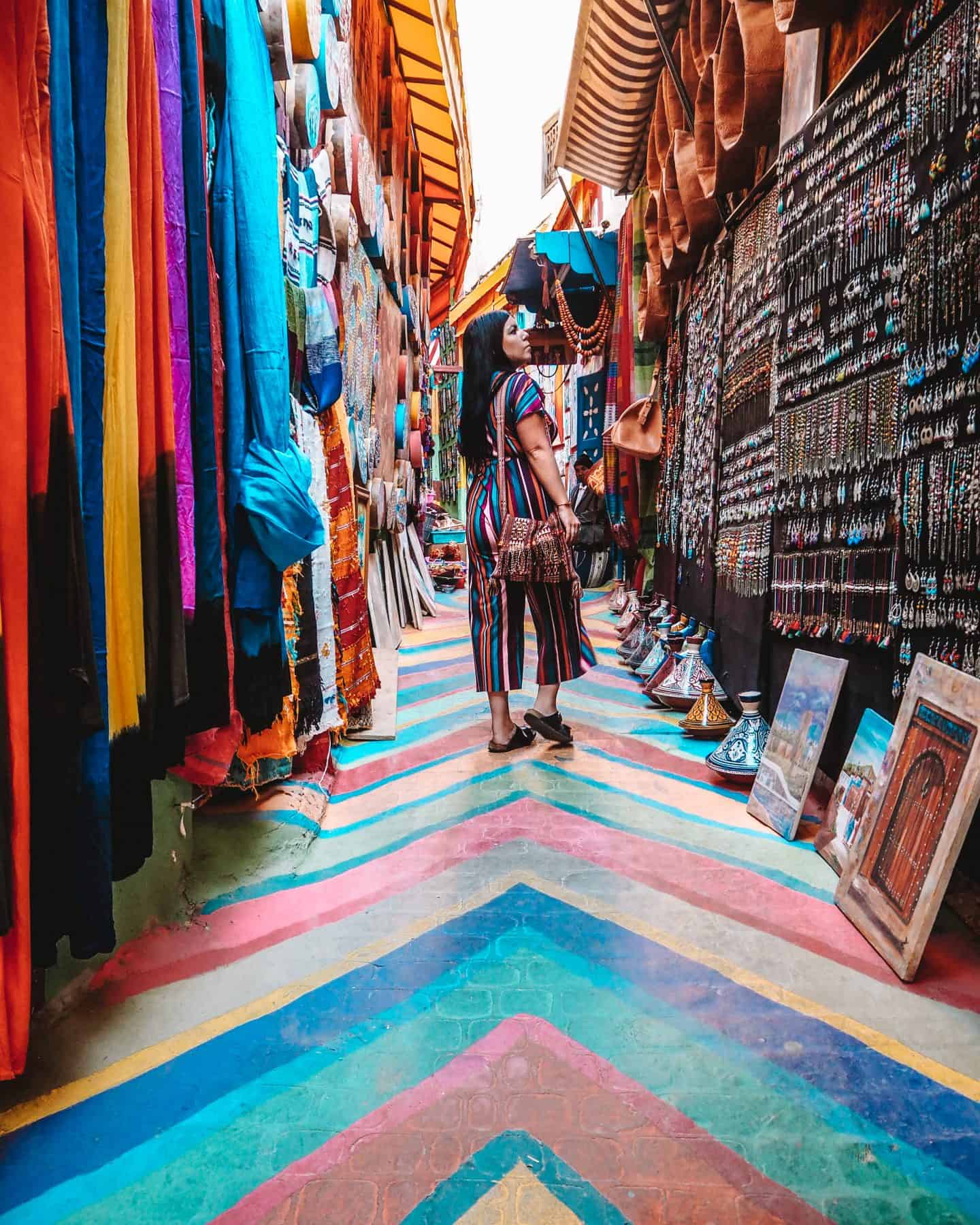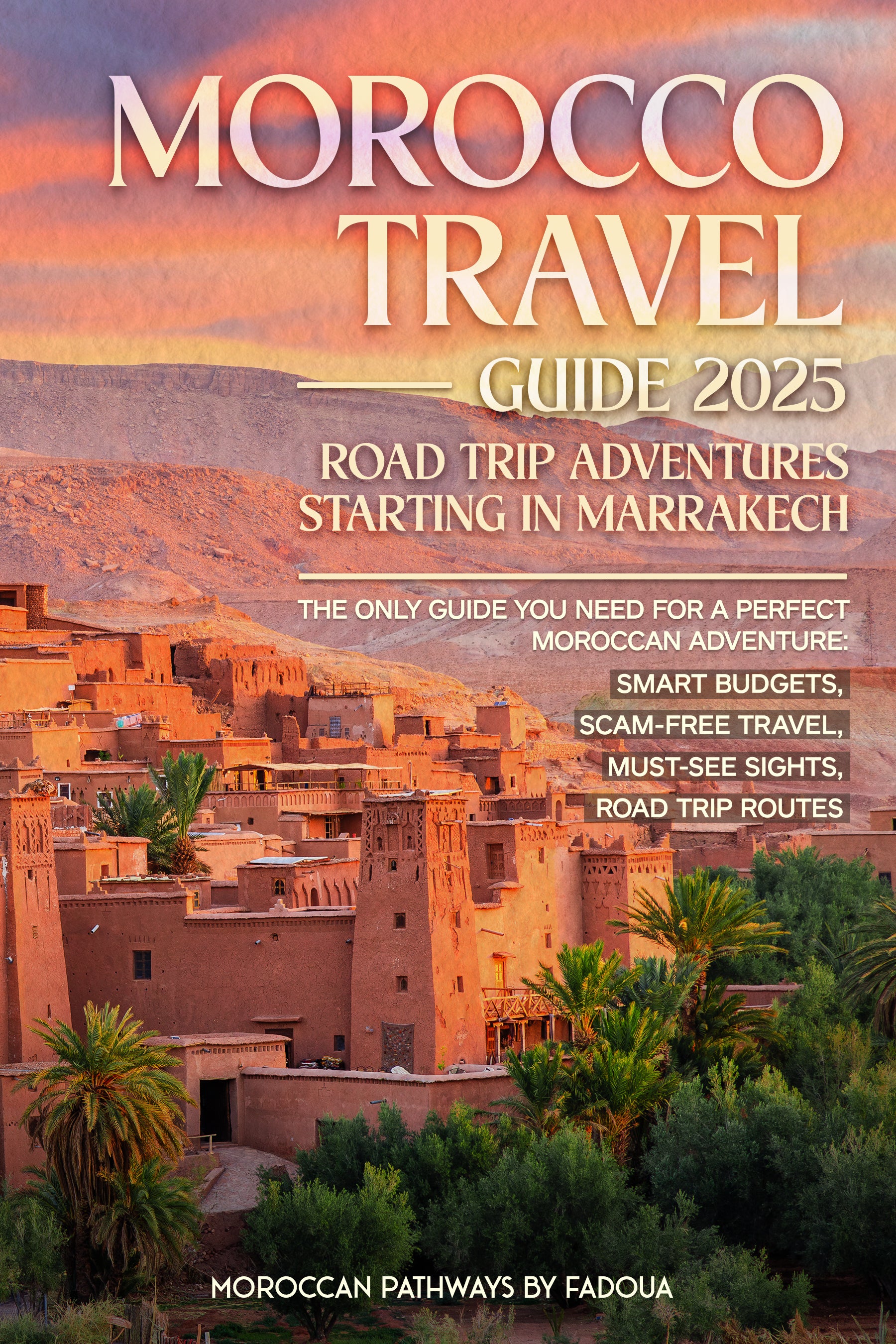Morocco Travel 2025: What to Know Before You Go
Source: thirdeyetraveller.com Overview of Morocco Geographical Diversity Morocco, located in North Africa, is a land of striking contrasts. From the sun-kissed beaches of the Atlantic coast to the towering peaks of the Atlas Mountains, every corner offers something unique. It’s a country where vibrant cities like Marrakech pulse with life alongside serene desert landscapes. Rich…

Overview of Morocco
Geographical Diversity
Morocco, located in North Africa, is a land of striking contrasts. From the sun-kissed beaches of the Atlantic coast to the towering peaks of the Atlas Mountains, every corner offers something unique. It’s a country where vibrant cities like Marrakech pulse with life alongside serene desert landscapes.
Rich History
With a history that dates back to ancient times, Morocco showcases influences from various cultures, including Berber, Arab, and French. Wandering through its ancient medinas feels like a journey through time. The architecture, from the intricate tile work to the vast palaces, tells stories of its rich past.
Climate and Best Time to Visit
Morocco experiences a diverse climate:
- Coastal Areas: Mild winters and warm summers.
- Inland Cities: Cooler winters and extremely hot summers.
- Atlas Mountains: Cold, snowy winters perfect for skiing.
For pleasant temperatures, plan a visit between March and May or September and November.
Morocco certainly has a charm that captivates every visitor, laying a rich foundation for the diverse aspects to come.

Culture and Traditions in Morocco
Fusion of Influences
The culture of Morocco is a vibrant tapestry woven from its rich history, blending Berber, Arab, and French influences. This remarkable mix is visible in everything, from the music played at local festivals to the traditional crafts displayed in bustling souks. Personal encounters often reveal how friendly and generous Moroccans can be, celebrating their heritage and customs.
Festivals and Events
Moroccans love to celebrate, and there are numerous festivals throughout the year. Some notable ones include:
- Mawazine Festival: A lively music festival showcasing local and international artists.
- Fez Festival of World Sacred Music: This event honors spiritual and world music.
- Eid al-Fitr: Celebrated at the end of Ramadan, this festival includes communal prayers, feasting, and giving to charity.
Traditional Clothing and Crafts
Moroccan attire reflects its diversity. The iconic kaftan and djellaba are not just fashion statements; they represent cultural identity. Visitors often find joy in purchasing handcrafted items like:
- Ceramic tiles with intricate designs
- Berber rugs known for their unique patterns
- Leather goods from the souks of Marrakech
Experiencing these traditions firsthand enhances one’s appreciation for Morocco’s rich cultural heritage, making every moment spent here truly unforgettable.

Top Destinations to Visit in Morocco
Marrakech: The Red City
No trip to Morocco is complete without a visit to Marrakech. The city’s vibrant souks draw you in with their colors and aromas. As one strolls through the bustling Jemaa el-Fnaa square, it’s easy to lose track of time.
- Must-see attractions:
- Koutoubia Mosque
- Bahia Palace
- Jardin Majorelle
Fes: The Cultural Capital
Fes is another unforgettable destination, celebrated for its medieval architecture and intellectual legacy. The labyrinthine streets of the Fes el-Bali medina can be overwhelming, but each turn offers something extraordinary, from the aroma of spices to the intricate tile work.
- Highlights include:
- Bou Inania Madrasa
- Al Quaraouiyine University (one of the oldest in the world)
- Tannery District
Chefchaouen: The Blue Pearl
Famed for its striking blue-washed streets, Chefchaouen is a photographer’s dream. It’s a peaceful enclave where visitors can unwind and soak in the stunning scenery. Enjoy a traditional Moroccan mint tea while overlooking the Riff mountains—it’s a moment of pure bliss.
- Explore:
- The Kasbah
- Local artisan shops
- Hiking in the surrounding hills
Morocco offers a tapestry of experiences, with each destination providing a unique flavor of its rich culture and history. Unsurprisingly, many travelers find themselves longing to return to explore more of this captivating country.

Travel Tips for Visitors
Plan Your Itinerary Wisely
To truly embrace Morocco’s diversity, a well-thought-out itinerary is essential. Depending on your interests, you may want to prioritize certain cities or experiences. For instance, if exploring the desert is high on your list, allocate enough time for an overnight stay in the Sahara.
- Suggested itinerary:
- 3 days in Marrakech
- 2 days in Fes
- 1-2 days in Chefchaouen and/or the Sahara Desert
Respect Local Customs
Embracing Morocco’s rich culture involves understanding and respecting local customs. Dress modestly, particularly in rural areas and religious sites. A light scarf can be handy for women, especially when visiting mosques.
- Tips to keep in mind:
- Greet locals with “Salam Alaikum” (Peace be upon you).
- Avoid public displays of affection.
- Ask for permission before taking photos of people.
Get Comfortable with Bargaining
Shopping in the souks is an experience in itself. When buying crafts or textiles, bargaining is both normal and expected. It not only makes shopping fun, but it can also result in incredible savings.
- Bargaining tips:
- Start with half the asking price.
- Be friendly and enjoy the process.
- Walk away if the price doesn’t feel right; oftentimes, sellers will call you back with a better offer.
Traveling in Morocco can be an enriching adventure filled with surprises, but being prepared ensures that you can savor every moment. This incredible journey enhances not just your experience but also your appreciation of this diverse land and its people.

Experiencing Moroccan Cuisine
A Feast for the Senses
Moroccan cuisine is a delightful journey of flavors and aromas that reflects the country’s rich cultural heritage. Every meal tells a story, often enhanced by the warm hospitality of Moroccan hosts. Whether dining in a bustling restaurant or enjoying a home-cooked meal, the experience is unforgettable.
Signature Dishes to Savor
While visiting Morocco, indulging in its signature dishes is a must. A few culinary highlights include:
- Tagine: A slow-cooked stew, usually made with chicken, lamb, or fish, infused with spices and often accompanied by preserved lemons and olives.
- Couscous: Traditionally served on Fridays, this dish consists of fluffy grains steamed over a flavorful broth, topped with vegetables and meat.
- Harira: A hearty soup typically enjoyed during Ramadan, filled with lentils, chickpeas, tomatoes, and fragrant spices.
Spices That Define Moroccan Cooking
The essence of Moroccan cuisine lies in its use of spices. A few essential ones that enliven dishes include:
- Cumin
- Cinnamon
- Saffron
- Coriander
- Paprika
During my visit, I had the pleasure of taking a cooking class where I learned to blend these spices, creating a mouthwatering tagine from scratch. The experience was not just about the food; it was also about understanding the love and tradition behind each ingredient.
Eating in Morocco is not merely about nourishment; it’s an experience that brings people together and celebrates culture. Engaging with local cuisines not only fills your stomach but also nourishes your soul, offering a deeper connection to the country’s rich heritage.

Accommodation Options in Morocco
Diverse Choices for Every Traveler
Morocco offers a wide range of accommodation options, catering to different budgets and preferences. From luxurious resorts to charming guesthouses, there’s something for everyone. During my travels, I discovered that where you stay can significantly enhance your experience of this vibrant country.
Luxury Hotels and Resorts
For those looking to indulge, Morocco boasts several opulent hotels and resorts. Notable mentions are:
- Royal Mansour, Marrakech: An architectural masterpiece, this hotel encapsulates traditional Moroccan design and modern luxury.
- La Mamounia, Marrakech: Renowned for its stunning gardens and exceptional service, it’s a favorite amongst celebrities.
- Anantara Sahara Marrakech Resort & Villas: Perfect for desert enthusiasts, offering a unique blend of opulence and adventure.
Charming Riads
For a taste of authenticity, staying in a riad is an ideal choice. These traditional Moroccan houses are adorned with beautiful tiled courtyards and offer an intimate atmosphere. Some recommended riads include:
- Riad Kniza, Marrakech: A beautifully restored riad that immerses you in Moroccan culture.
- Riad Fes, Fes: Known for its stunning architecture and tranquility amidst the city’s hustle and bustle.
Budget-Friendly Options
Travelers on a budget will find plenty of hostels and guesthouses that provide comfortable stays without breaking the bank. Some options to explore are:
- BackHome Hostel, Marrakech: A friendly atmosphere with a rooftop terrace perfect for meeting fellow travelers.
- Dar Hafsa, Fes: An affordable yet charming guesthouse located near the medina.
Choosing the right accommodation can elevate your Moroccan adventure, allowing you to engage with the country’s essence and providing a cozy retreat after a day of exploration. With a little planning, every traveler can find the perfect place to rest and recharge.

Adventure Activities in Morocco
Thrills Awaits Around Every Corner
For adrenaline seekers, Morocco provides a playground of adventure activities set against the backdrop of stunning landscapes. From the soaring Atlas Mountains to the vast Sahara Desert, the options are limitless. I found that exploring these adventures truly highlighted Morocco’s natural beauty and cultural richness.
Trekking and Hiking
The Atlas Mountains are home to some of the most breathtaking trekking routes. Popular treks include:
- Toubkal Trek: This challenging climb takes you to the highest peak in North Africa. The sense of achievement upon reaching the summit is indescribable.
- Ourika Valley Hikes: Ideal for a lovely day trip, featuring stunning waterfalls and local Berber villages.
Sandboarding and Camel Riding
In the Sahara Desert, visitors can experience the thrill of sandboarding down majestic dunes or embark on a camel trek. Some highlights include:
- Erg Chebbi Dunes: Known for their beautiful landscapes, camel rides here offer a unique way to observe a sunset.
- Sandboarding Adventures: Glide down the golden sands for an exhilarating rush.
Water Sports and Surfing
For beach enthusiasts, Morocco’s coastline has fantastic options for water sports. Notable locations include:
- Taghazout: Renowned as a surfer’s paradise with consistent waves, it caters to both beginners and experienced surfers.
- Agadir: Offers a range of water activities from jet skiing to paddleboarding.
Engaging in these adventure activities immersed me in Morocco’s diverse scenery while providing exhilarating experiences I’ll never forget. Embracing the thrill of these activities not only showcases the country’s natural wonders but also highlights its vibrant culture, making every adventure worthwhile.

Sustainable Tourism in Morocco
Embracing Ethical Travel
As travelers increasingly seek to minimize their impact on the environment, sustainable tourism in Morocco is gaining momentum. During my travels, I witnessed firsthand how both locals and tourists are committed to preserving the country’s natural beauty and cultural heritage while providing authentic experiences.
Eco-friendly Accommodations
Many hotels and riads in Morocco are taking steps towards sustainability. Options include:
- Dar Nour, Essaouira: This eco-conscious guesthouse promotes local craftsmanship while using solar energy.
- Hotel Riad 72, Marrakech: Committed to reducing waste, it operates with sustainable practices like recycling and sourcing local products.
Community-based Tourism
Supporting local communities is key to sustainable travel. Engaging with local guides and artisans not only enriches the experience but also provides economic benefits. Consider these approaches:
- Cultural workshops: Participate in cooking classes or craft-making sessions to learn from skilled artisans directly.
- Guided tours by local residents: Such tours often provide a more authentic insight into local culture and history.
Respecting Nature and Environment
To minimize your footprint while exploring Morocco’s magnificent landscapes:
- Practice ‘Leave No Trace’ principles—recycle, dispose of waste properly, and respect wildlife.
- Opt for hiking or biking tours instead of driving. This not only respects nature but allows for a more intimate connection with the environment.
By embracing sustainable tourism, travelers can enjoy the beauty of Morocco while supporting its communities and preserving its landscapes. This mindful approach not only enriches the travel experience but also fosters a deeper connection with the places we explore, ensuring they remain vibrant for future generations.

Shopping and Souvenirs in Morocco
A Rich Tapestry of Local Crafts
Shopping in Morocco is like stepping into an artisan’s dream, where vibrant souks burst with colors and textures. During my exploration of the markets, each stall seemed to tell a story, and finding unique souvenirs became an adventure in itself.
Must-Visit Markets
The bustling souks are full of treasures waiting to be discovered. Key markets to explore include:
- Marrakech Souk: Famous for textiles and spices, it’s a labyrinth that feels alive with color and scent.
- Fes El-Bali: Known for leather goods, ceramics, and intricate metalwork—all meticulously crafted.
Unique Souvenirs to Bring Home
When it comes to souvenirs, Morocco has a variety of items that capture its essence:
- Handmade Pottery: Often painted in vibrant colors, these pieces can range from tagines to decorative plates.
- Textiles: From beautiful Berber rugs to colorful scarves, these items showcase the country’s artisan craftsmanship.
- Argan Oil: A local beauty staple, this oil is extracted from the nuts of argan trees—a perfect gift that reflects Moroccan traditions.
Bargaining Tips
Don’t shy away from haggling; it’s part of the fun! Remember these tips for an enjoyable experience:
- Start at about half the initial asking price.
- Keep the conversation light and friendly; it makes a significant difference.
- If a price feels fair to you, don’t hesitate to settle.
Shopping in Morocco is more than just buying souvenirs; it’s an opportunity to interact with local culture and support artisans. Each purchase I made felt meaningful, serving as a beautiful reminder of my adventure in this enchanting country.

Understanding the Local Language
A Melting Pot of Languages
In Morocco, language is not just a means of communication; it’s a gateway to its rich culture. The primary languages spoken are Arabic and Amazigh, with French widely used, especially in urban areas. During my travels, I found that a little effort in language could create meaningful connections with locals.
Common Phrases to Know
Learning some basic phrases can enhance your interactions. Here are a few essentials that can make a big difference:
- Salam Alaikum (Peace be upon you): A common greeting, it’s a warm way to start any conversation.
- Shukran (Thank you): A simple yet powerful way to express gratitude.
- La shukran (No, thank you): Helpful for politely declining offers in markets or restaurants.
- Bslama (Goodbye): A friendly way to part ways.
Engaging with Locals
Using the local language, even just a word or two, can lead to delightful conversations. I recall chatting with a shopkeeper in Marrakech; when I used “shukran,” his face lit up, and he eagerly shared stories about his crafts. It transformed a simple transaction into a memorable experience.
Language Tips for Travelers
If you’re looking to dive deeper into Moroccan culture, consider:
- Language Apps: Downloading apps like Duolingo or Rosetta Stone can be helpful for learning phrases before your trip.
- Practice with Locals: Don’t hesitate to ask local friends or guides for help with pronunciation or vocabulary.
Understanding the local language opens doors to authentic experiences and connections. By making an effort to learn some simple phrases, travelers can enrich their journey through Morocco, fostering deeper interactions with its warm and welcoming people.






